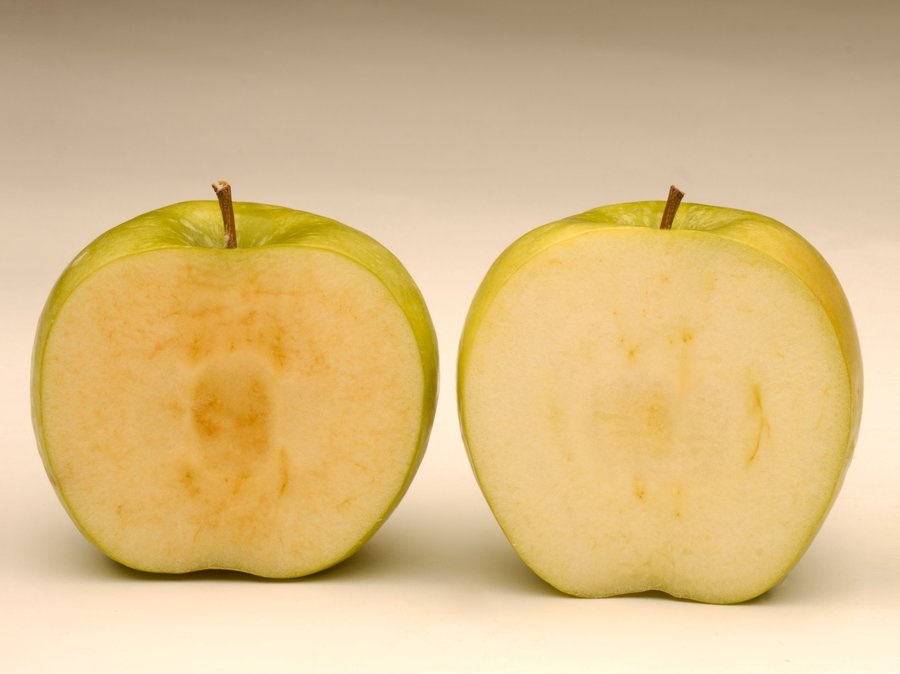Soon to hit markets in the Midwest, a new fruit is causing minor controversy among consumers and farmers
By: Lisa Zuiderveen
Over the next few months, a non-browning apple will be appearing in select grocery stores in the Midwest. Arctic Apple is finally launching the apple that they have been testing for nine years. There is a lot of controversy on genetically modified organisms (GMOs) because of possible adverse effects in the future.
This apple has been genetically modified to eliminate the browning that occurs when an apple is left out in the open air. Advocates hope this will appeal to consumers and people will begin to view GMOs positively rather than negatively.
GMOs have been used for our food products since the beginning of civilization. Farmers would take the largest apple and take the seeds and then plant those to create a breed of the bigger apples. The same thing occurs with corn, and corn has had a massive impact in many foods we consume. It’s changed sugar, gas, and is used as a primary ingredient in animal feed.
GMOs are in numerous of other foods as well.
“A lot of foods that you eat that you don’t even know are Stacy Wing, DHS secretary and owner of Wing Farms
Nevertheless, many of the positive aspects of GMOs have been overlooked because people believe modifying foods changes the quality and are unsure because they are not natural.
“People are all worked up over nothing as usual,” Wing said. “The media has everybody freaked out about something that they don’t need to be freaked out about. There is nothing dangerous that has been proven about GMOs.” Wing said.
The concern of the new non-browning apple is derived from some people in the apple industry. They believe the GMO apple will taint their apples’ wholesome image and they will lose their consumers. This strikes home for many people in Michigan, which is a major producer of apples.
“GMOs in general have already affected a lot of people in the farming industry because so many people really want to have non GMO foods, so some farmers are trying to grow only non-GMO foods and it’s changed, a little bit, the face of agriculture,” Wing said.
The GMO apple could reduce the number of pre-sliced apples currently served in the cafeteria and for places like McDonalds who serve pre sliced apples in Happy Meals.
“The apples in the cafeteria taste like chemicals and aren’t appetizing,” junior Grace Kacmarek said.
These sliced apples have antioxidant chemicals like calcium ascorbate that keep them looking like a fresh-cut apple. According to Neal Carter, president of Okanagan Specialty Fruits, the GMO apple would be 30 percent cheaper than the current antioxidant chemical sliced apples.
Arctic Apple created the apple in hopes that children will eat them because the brown would no longer be a gross factor for picky kids.
The plan, according to Carter, is to slice the apple and put the slices in bags to produce the same effect that baby carrots had when they were first made. This is also for easy access and convenience in hope that people will eat more apples.
While some are against the apple, others are excited about the prospect of a non-browning apple.
“I don’t like the brown parts on apples; I usually try to avoid that part,” senior Hannah Bohn said. “If there were apples that didn’t brown I would definitely try it.” 
Photo Courtesy of NPR
